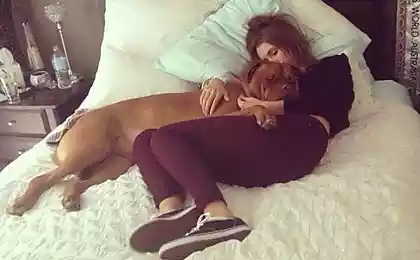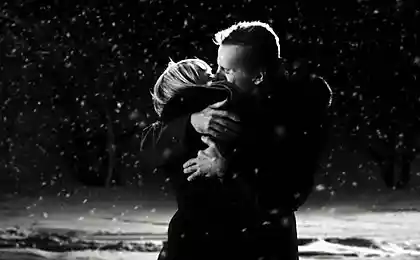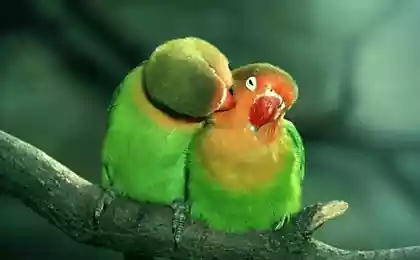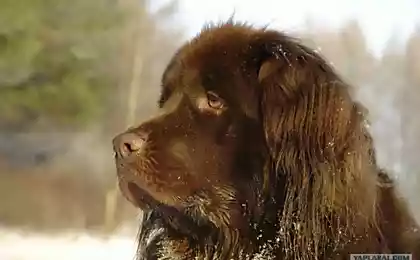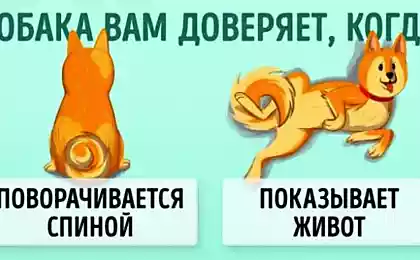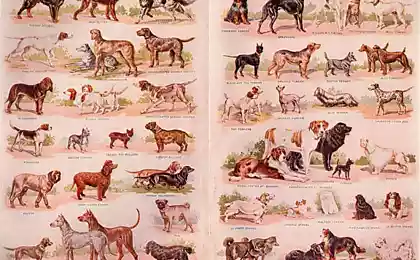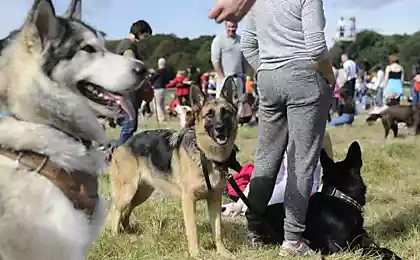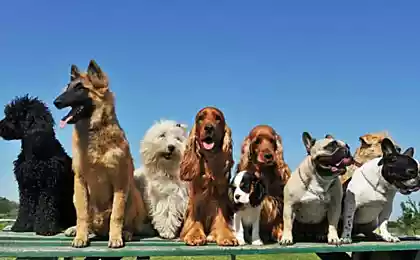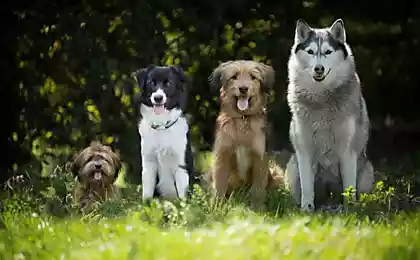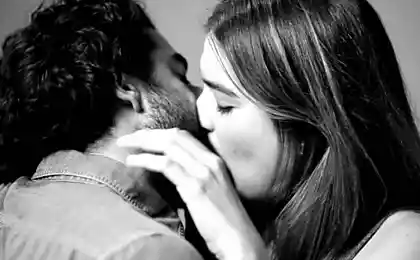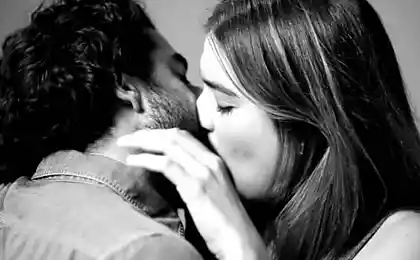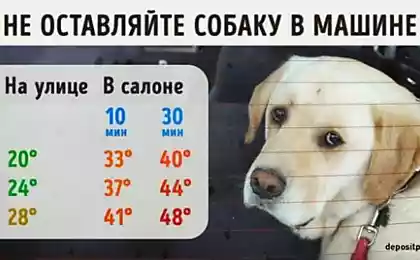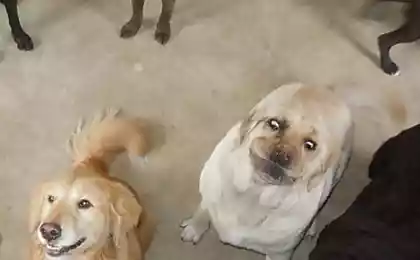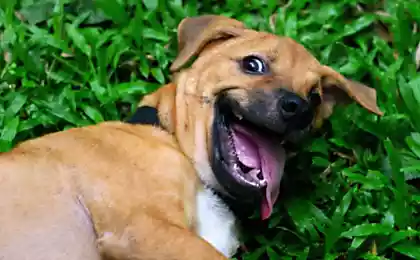643
Dog kisses or how the world sees Your pet
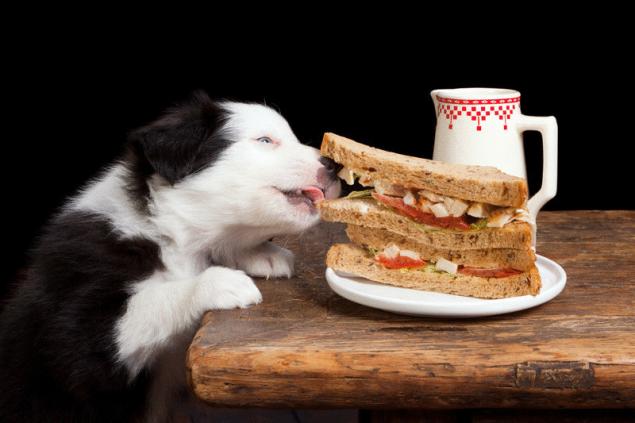
You know the owners of the dogs their daily, mundane behavior? What really means a dog is "kissing"? American Professor of psychology, the animal behavior specialist — the differences in the perception of the world and his Pets.
In someone else's skin
To be able to recognize essential elements Umwelt animal — so essentially, become an expert on mites, dogs, people and so on. It is thus possible to reduce the gap between what we we think we know about dogs, and what are they really.
We can try to grasp the Umwelt of another animal, to incarnate in the animal (bearing in mind the limitations imposed by our sensory system). It's amazing to spend the day srovnavaci growth with the dog. Sniffing (even our imperfect noses) objects that we encounter throughout the day, radically changing our understanding of familiar things.
Now pay attention to the sounds in the room where you are — sounds, to which you are accustomed and which are usually ignored. So apply pressure, I hear the fan noise in the corner, the buzz of a truck in the distance, indistinct voices of people ascending the stairs; under someone creaking wooden chair; my heart beats; I swallow; rustling turn the page. If my hearing sharper, I could see a pen scratching across the paper in the opposite end of the room, would have heard, as the flower grows and how talking insects under my feet. Perhaps other animals can clearly hear the sounds.
Value thingsDifferent animals have different objects around you. The dog, who looks around the room, does not consider itself surrounded by things human — all are objects of his world. Our idea of what a particular subject can be matched with a dog, and can and not coincide. The meaning of things is determined by what we do to it (background Ikskyul called it "functional tone"). The dog may be indifferent to the chairs, but if you teach her to jump, the chair becomes a thing where you sit. Subsequently, the dog can open that there are other things intended for seat: a couch, a pile of pillows or a lap man.
So we're starting to understand what similar ideas about the world of dogs and humans and how are they different. For dogs many objects in the world connected with food — far more than for people. Moreover, they distinguish between "functional tones", which for us do not exist — for example, things on which to lie. If we are not children and are not prone to such games, the number of such items committed for us to zero. Conversely, a lot of things, has for us a certain value (forks, knives, hammers, pushpins, fans, clocks, and so on), you do not have for dogs no (or almost no) sense.
So, for dogs, there is no hammer. He means nothing to her, at least until it is not associated with other, meaningful object (for example, used by the owner; pissed on it cute dog, who lives down the street; he had a wooden arm, which can chew).
When Umwelt dog and human face, as a rule, people do not understand what they are doing to their Pets. For example, people quite seriously claim that his dog knows that on the bed it is nothing to do. People can even buy a special dog bed and ordered the dog to go lie down there. Usually the dog obeys. The person feels satisfied. Still, made another step towards understanding.
But is it? Many times, returning home, I found a crumpled, still-warm bed and knew that there lay my dog happily greeting me on the doorstep, or some unknown invisible stranger. We can easily identify: the bed is for humans, dog bed for dog. Human bed — place, it can be expensive bedding and a pillow menu. We don't come to mind sit on the dog couch, which cost us (relatively) inexpensive and izgibanii strewn with toys.
And what about the dog? She can't see much difference between his and our beds, but our much more attractive. Because the bed smells like man and dog couch that was at hand from the master. Bed is the place where we spend some time; there happen to be scattered crumbs and clothes. Of course, the dog prefers our bed to his bed! She did not know why we perceive this place as something else. Of course, the dog can learn that human bed is something special, if it is regularly to blame for what he is. But then he grasps not the difference between his bed and our bed, but rather the difference between places where he is not free to lie.
In the world of dog bed does not have "functional tone". Dogs sleep wherever they can, and not where I would like this to us. For vacation, they choose places where you can comfortably lie down where not hot and not cold, there are relatives and safely. These requirements are satisfied by almost any flat surface in the house. Organize any area in accordance with a dog's tastes — and your pet will probably find it not less desirable than the bed.
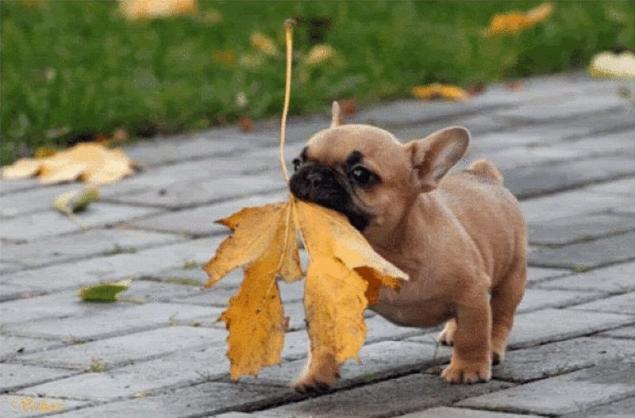
Dog "kisses"Kisses for the Pumpernickel is a way of establishing contact; that is to say, extending my hand.
The pumpernickel licks my face when I returned home, bend over to pet her. She licks my hand to Wake up, when I start to doze off in the chair. She carefully licks my sweaty after a run feet. Sitting next, Pumpernickel presses my hand front paw, he opens the nose a fist and licks the palm. I love it.
I often hear dog owners confide love their Pets "kisses," which dogs give them after returning home, whether it's slobbering "kisses" in the face or a pensive "polishing" hands language.
I think kissing is a Popular sign of affection. "Affection" and "love" is not a recent invention of our society, who believe dogs are little people who should be put on in bad weather spoiling trips to the resort and to dress up for Halloween. Who lived long before the establishment of "dog manger" Charles Darwin (which I'm sure wasn't wearing his puppy in the costume of a Goblin or witch), wrote about a dog "kissing", not doubting their value. Dogs, according to Darwin, is an amazing way to show your affection — namely, licking the hands or face of the host. Whether the rights of Darwin? Dog "kisses" seem to me a manifestation of love, but what did you think about the dog itself?
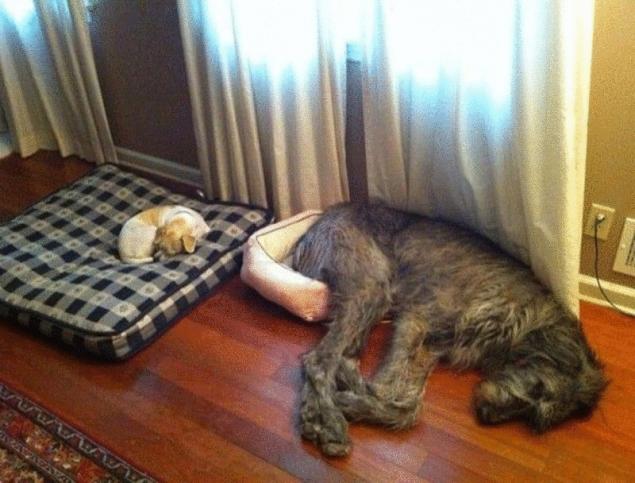
I have bad news for you. Observations of wolves, coyotes, foxes showed that puppies lick the face of his mother, returned from hunting, and require that she threw proprietaren food. Licking around its mouth, apparently, stimulates the mother to this. As far as the Pumpernickel is probably disappointed that I never shared with her eaten by a rabbit!
However, dogs are nice to lick our faces. Their taste buds to recognize salty and sweet, bitter and sour, and even the taste of umami (a cross between mushrooms and seaweed), feel MSG. Dogs can smell the sweet taste a little differently than we do (we have salt enhances a sense of sweetness).
"Sweet" receptors in dogs particularly much, although, for example, sucrose and fructose are they stronger than glucose. Must be omnivorous dogs have evolved this ability to distinguish between Mature and immature plants and fruits. Interestingly, even pure salt does not stimulate the so-called "salty" receptors of the tongue and palate dogs as it is in humans. But you don't have to wrestle with the behavior of the Pumpernickel to understand her "kisses" are often associated with the fact that I recently had her eyes absorbed a fair amount of food.
And now the good news: with time having a pragmatic licks (what we call a dog "kisses") has become a ritual of welcome. In other words, it is not only a way to beg food, but to say Hello. Dogs and wolves lick the muzzle of each other to say welcome back and smell to determine where and why absent kindred. Mother not only wash the puppies, licking them, having returned after a brief separation, they give them a few quick "kisses". A young or timid dog may lick the face of a large terrible dog to appease him. Familiar dogs may cause to exchange "kisses", walking on a leash.
"Kiss" is also a way to verify (through smell) that the dog eager to meet, really familiar. And, as a welcome "kisses" are often accompanied by tail wagging, opened with delight the mouth and overall excited, wouldn't be a stretch to say that the licking is a way to Express my delight at the fact that you returned home. published
From the book "the Dog from nose to tail."
Source: www.7ya.ru/article/Vasha-sobaka-chto-ona-znaet-o-vewah-Chast-II/
Enjoying Nakadai. Or notes on second twenty years. Part 1
Children: What are the consequences of early development



